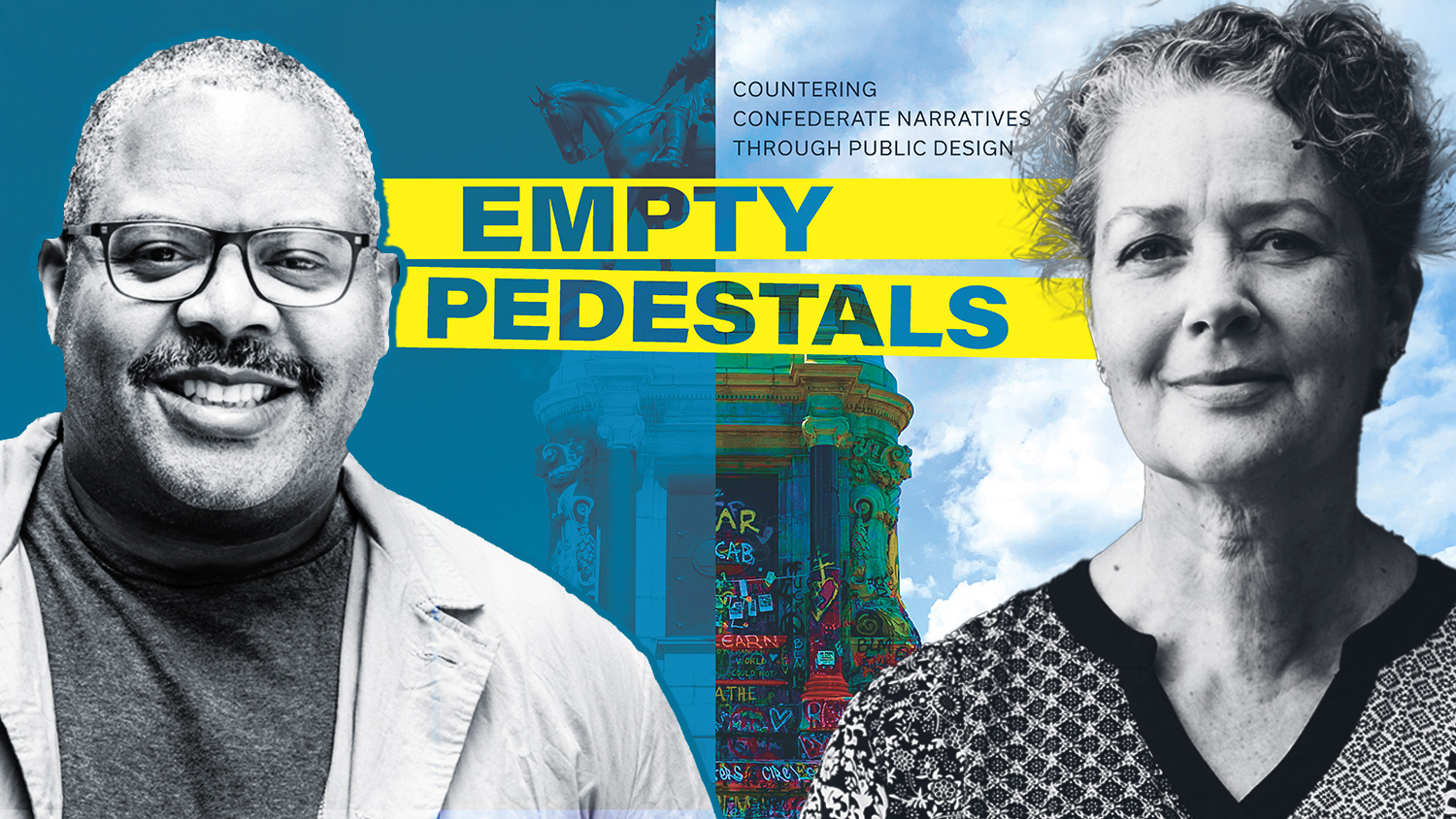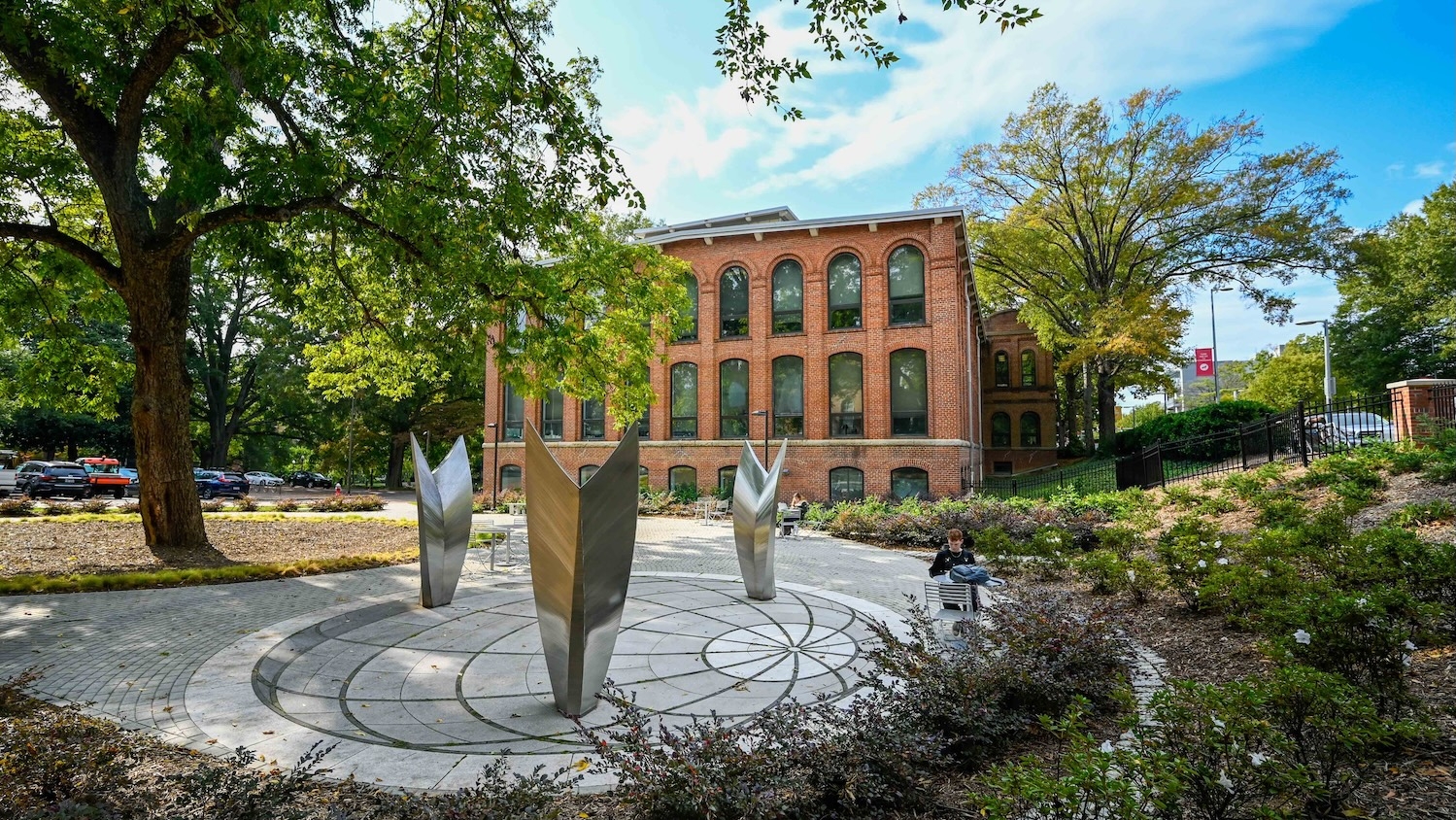Agents For Change: Black Excellence in the NC State Sustainability Community

Representation matters. It is important for us to bring to the forefront stories of Black excellence, particularly on campus. Black History Month is designed to recognize and acknowledge the tremendous contribution the African American community has provided. As we embrace Black History Month this year, it is important to acknowledge Black change agents in the NC State community who are actively advocating for an economically viable, environmentally sound and socially just campus community.
Jessica Thomas
Poole College of Management
Jessica Yinka Thomas is an academic and an author with over 15 years of experience studying social innovation, sustainability and business ethics. Professor Thomas is the director of the Poole College Business Sustainability Collaborative, an academic initiative focused on preparing the next generation of leaders to use business as a force for good. She is also an Assistant Professor of Practice in the department of Management, Innovation and Entrepreneurship, where she teaches social innovation and environmental sustainability in the undergraduate and MBA program. Her work focuses on studying innovative sustainable business models including B Corporations. She leads the nationally-recognized, B Corp Clinic, an experiential learning consulting program where multidisciplinary students work with aspiring and certified B Corps to drive social and environmental impact. Professor Thomas is president and chair of the board of B Academics, a global network of over 2000 educators and researchers studying B Corps and benefit corporations. Professor Thomas has published numerous award-winning case studies and is the author of two social justice novels. She is a recipient of the Bill Clark B the Change award, the B Lab Collective Action award, the Fuqua Leader of Consequence Award, and the NC Business Council Visionary Leadership Award. She has led globally recognized academic programs at Duke University’s Pratt School of Engineering, UNC Chapel Hill’s Kenan Flagler Business School and now at NC State’s Poole College of Management. Before her career in academia, Professor Thomas spent over a decade in industry in roles ranging from designing mobile satellite communications systems at a multinational corporation, managing product development for an educational toy company startup and consulting for global non-profits. She received her BS in Mechanical Engineering from Stanford University and her MBA from the Fuqua School of Business at Duke University.
Tatiana Height
Doctoral Student
Tatiana Height (she/they) is a native of Chicago, IL but has made NC home for over three years. Tatiana holds a Bachelor of Arts degree from the University of Nebraska-Lincoln (UNL) with a major in Great Plains Studies and minors in Environmental Studies, Agribusiness Entrepreneurship, and Community Regional Planning. As a part of the Great Plains Studies Program, they pursued two emphasis areas in Land & Environment and Culture & Community. Later, Tatiana received a Master of Community & Regional Planning degree while also working full-time as an Integrated Water Management Planner for the State of Nebraska. At present, Tatiana is a doctoral candidate in the Agricultural and Extension Education program with dissertation research focused on Multicultural Environmental Education. They also serve on the NC State Environmental Justice Advisory Board, work as a Student Extension Associate for the NC Sea Grant Program, assist with research in the NC State Watershed Ecology Lab, are communications co-chair of the Black Graduate Student Association, and are a recipient of the A.M. Witherspoon Graduate Scholarship from the NC State University Black Alumni Society.
Kofi Boone
College of Design
Kofi Boone, FASLA, is a University Faculty Scholar and Professor in the Department of Landscape Architecture and Environmental Planning at NC State University in the College of Design. Kofi is a Detroit native and a graduate of the University of Michigan (BSNR 1992, MLA 1995). His work is in the overlap between landscape architecture and environmental justice with specializations in democratic design, digital media and interpreting cultural landscapes. Kofi’s teaching and professional work have earned awards including student and professional ASLA awards. He serves on the Board of Directors of The Corps Network as well as the Landscape Architecture Foundation where he is President-Elect. Kofi serves on the advisory board of The Black Landscape Architects Network. He has published work broadly in peer reviewed as well as popular media, including The Conversation, Journal of Landscape and Urban Planning and Landscape Architecture Magazine.
Melvin (Jai) Jackson
Office of Institutional Equity and Diversity
Melvin (Jai) Jackson (he, him, his) currently serves as the Assistant Vice Provost for Faculty Engagement within the Office of Institutional Equity and Diversity at NC State University. Jai earned both a B.S.B.A. and M.A. from Appalachian State University and his Ph.D. from Louisiana State University. He is a passionate servant-leader inspired by his work towards student advocacy, success and representation. Through service in diversity, inclusion and equity, Jai continues to dedicate his career towards the proliferation of an environment of collective success, anti-racist realities and holistic inclusion.
As an academic scholar, his research has focused on the ‘intersectionality’ that exists within education systems and how this occurrence can promote an environment of inequality for underrepresented populations. The principal goal of his research is to expose the institutionalized racism that exists within American education and further examine how race, power, law, and politics intersect to create an unequal system of discursive ideals and cultural norms that perpetuate institutionalized racism. His research agenda had its inception at the start of his collegiate career in higher education. As he was subjected to the institutional racism that commonly permeates through predominantly White colleges and universities he grew more interested in exploring how and why things operated as they did. His earliest research regarding race, culture and education came about while serving as a co-instructor for a course on social issues and social change. The research he conducts is seen as unsettling and controversial for many in education but he feels passionate about the subject area and all that can be gained from exposing the phenomena that exist to perpetuate the ongoing cycle of oppression, institutionalized racism and marginalization of underrepresented populations. His research is important because without it, the leaders of today will continue to encounter opaque glass ceilings and those leaders in American schools today will become even more estranged from the potential they possess in the world today.
Oppong Hemeng
University Sustainability Office
Oppong Hemeng is the Program Specialist with the NC State Sustainability Office. Oppong is a social economist and business professional charged to further sustainability initiatives that are economically viable, environmentally sound, and socially just in multiple industries. Chief among his responsibilities is the coordination of the NC State Stewards who are charged with creating large-scale initiatives. He works to develop high-impact experiences that enhance the understanding of sustainability and its impacts. Oppong also coordinates the environmental justice strategic plans for the university and partners with local communities to properly advocate for social issues. Serving as a part-time instructor for the College of Natural Resources teaching exploratory courses, Oppong works closely with faculty to develop sustainability-related curriculum. He also oversees the university Sustainability Fund.
Prior to joining the University, Oppong managed corporate social responsibility initiatives in the sports and entertainment industry. Oppong holds Economics and Political Science degrees from the University of Houston, Masters in Sports Management from the University of Florida, and is currently completing the Masters of Climate Change & Society from NC State. He is a professional athlete as a fencer and is currently training to qualify for the Olympics.
Finally, we wanted to recognize all sustainability change agents in the NC State sustainability community who are working to promote sustainability through business, academics, research, global engagement, community development and more.
This post was originally published in Sustainability News.


